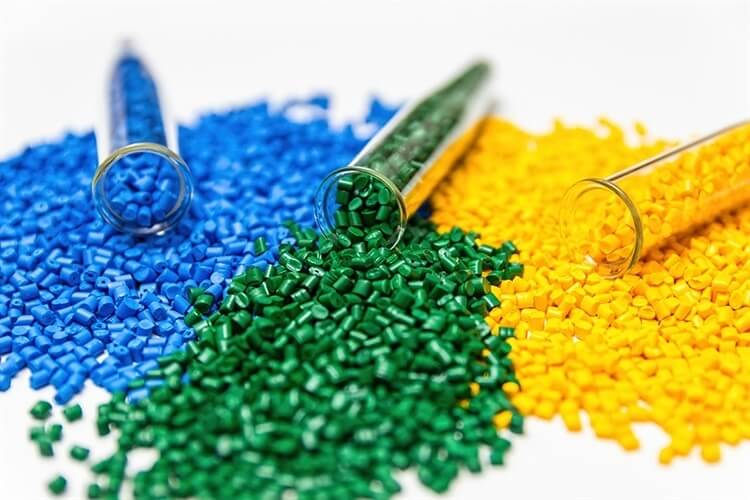Top Uses Polymers: Enhancing Everyday Products
Top Uses Polymers: Enhancing Everyday Products
Blog Article
Checking Out the Varied Applications and Advantages of Polymers in Different Industries
Polymers, with their varied array of buildings and functionalities, have come to be important in different sectors, each enjoying special advantages from their application. From enhancing security and efficiency in the automotive industry to transforming clinical tools in the health care sector, polymers play an essential role.
Automotive Sector Applications
Polymers play a pivotal duty in enhancing the performance and sturdiness of numerous parts within the automotive market. These versatile products are extensively utilized in the production of different components, varying from interior elements to under-the-hood applications. One prominent use of polymers in the automotive sector is in the production of lightweight parts. By changing conventional metal get rid of polymer-based choices, cars can accomplish enhanced gas effectiveness without endangering on stamina or safety.

Healthcare Industry Advantages
In different health care applications, the benefits of using polymers are extensively recognized for their varied series of advantageous homes. Polymers play a critical duty in the health care market as a result of their adaptability, biocompatibility, and cost-effectiveness. Among the main benefits of polymers in health care is their capacity to be tailored to certain needs, such as flexibility, longevity, and biodegradability, making them ideal for a large variety of clinical applications.
Polymer-based products are thoroughly utilized in clinical devices, such as catheters, implants, prosthetics, and drug shipment systems, due to their biocompatibility and capability to resemble all-natural cells. These materials can minimize the threat of allergies or denials, enhancing individual safety and security and end results. Furthermore, polymers are lightweight, making them suitable for wearable medical gadgets and making sure client comfort.
Additionally, polymers enable the development of innovative therapy techniques, such as hydrogels for tissue design and nanocomposites for targeted medicine shipment. Their ease of processing and sterilization makes them vital for maintaining high criteria of health in healthcare setups. Overall, the varied advantages of polymers add significantly to developments in clinical modern technology and client go now treatment.
Ecological Advantages of Polymers
:max_bytes(150000):strip_icc()/three-dimensional-model-of-polyvinyl-chloride-165874889-5c425ea7c9e77c000188be6d.jpg)
Furthermore, polymers can add to power savings because of their light-weight nature. In sectors such as transport, light-weight polymer materials can assist reduce gas usage and greenhouse gas exhausts. In addition, polymers can allow the advancement of energy-efficient products such as insulation materials that improve energy conservation in buildings.
Furthermore, polymers play a critical duty in reducing water pollution. As an example, the use of polymer-based purification systems can effectively get rid of contaminants and contaminants from wastewater, securing water resources and ecosystems. Overall, the environmental advantages of polymers make them valuable properties in promoting sustainability and eco-friendly methods throughout various markets.
Polymers in Electronics and Technology
Thinking about the increasing need for cutting-edge and sustainable services in modern-day industries, the integration of innovative polymer innovations in the realm of electronic devices and technology has become an essential approach for driving efficiency and performance. Polymers have actually changed like it the electronic devices market by allowing the manufacturing of lighter, a lot more versatile, and long lasting digital devices. From smart devices to medical devices, polymers play a vital duty in enhancing item design and functionality.
One considerable benefit of polymers in electronic devices is their shielding buildings, which help safeguard fragile electronic parts from ecological aspects and electrical interference. Furthermore, polymers are essential in the development of versatile screens, wearable modern technology, and published electronics, using countless possibilities for producing wise and interconnected gadgets.
Furthermore, making use of polymers in electronic packaging has actually led to advancements in miniaturization and thermal administration, enhancing the general efficiency and dependability of digital systems. As innovation continues to progress, the flexibility and flexibility of polymers will definitely drive further innovation in the electronic devices market, forming the future of technology.
Function of Polymers in Building and Framework
The combination of advanced polymer materials in building and facilities tasks has transformed the way frameworks are created and constructed in modern-day times. Polymers provide countless benefits in the building and construction industry because of their flexibility, sturdiness, and cost-effectiveness. One vital role of polymers in Resources construction is their use in finishings and sealers, providing security against environmental elements such as wetness, UV radiation, and deterioration. Furthermore, polymers are made use of in the manufacturing of light-weight and high-strength composite materials, enhancing the architectural stability of structures while lowering total weight.
Additionally, polymers play a crucial duty in lasting building and construction practices by allowing the growth of energy-efficient structures. Shielding products made from polymers help regulate interior temperature levels, lowering the need for home heating and cooling down systems and ultimately decreasing power usage - Polymers.
Final Thought
In final thought, polymers play an essential role in numerous markets such as vehicle, healthcare, environmental, electronics, and building and construction. From boosting gas performance in lorries to enhancing clinical devices, polymers use countless benefits.
Report this page